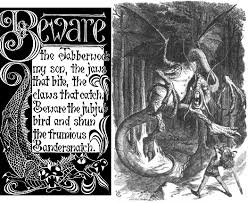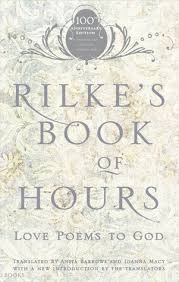Artistic Afternoons: "Poetry is the language of the spirit and the soul, not of the discursive mind. It compresses the lived truth of the poet's experience into a beauty and wisdom that can slip under the skin of the reader and enter the bloodstream." - For Lovers of God Everywhere
Roald Dahl's "I've Eaten so Many Strange and Scrumptious Dishes. . ." from James and the Giant Peach.
Address - Sunday 14th October.
Most of you know that I love poetry. Unfortunately this is something that is not
shared by everyone. Many people have
developed as much a fear of poetry as they have of my other love, mathematics,
and in a way I guess that it is for much the same reason. That somewhere in the past a combination of
bad teaching and a sense of failure have struck a fear in the heart when we
hear the word mathematicss and similarly when we are asked to read a poem. Despite this though I am sure that for
everyone here there is a sense of the poetic somewhere within you. It might be that a snippet of verse or even a
complete poem may have crept into your mind and whenever you hear that familiar
line or verse you mentally join in with it.
It may be the poems of your childhood, poems that can contain such
wonderful words and pictures that you might never find anywhere else except in
a poem. The poem by Roald Dahl is an
example of some of those wonderful words – such as dandyprats, mudburgers and
stinkbugs – the pictures they conjure up must surely fire the imagination of
today’s children.
 For me it was the
poetry of Lewis Carroll – such as Jaberwocky
and ‘ ‘twas brillig and the slithy toves
did gyre and gimble in the wabe;/all mimsy were the borogroves, /and the
mome raths outgrabe . . .
For me it was the
poetry of Lewis Carroll – such as Jaberwocky
and ‘ ‘twas brillig and the slithy toves
did gyre and gimble in the wabe;/all mimsy were the borogroves, /and the
mome raths outgrabe . . .
That to me is the wonder of all poetry – the words.
. .
Arthur
Mampel said: “The poet and man of letters, Archibald MacLeish tells in one of
his poems how difficult it is for the poet to communicate reality with words.
It is like awakening from a marvellous dream where everything is clear and
crystal like—and then, when our eyes are opened, the memory of the dream
becomes fuzzy and out of focus and confused.”
I would
like you to hear that poem by MacLeish:
Words In
Time
Bewildered
with the broken tongue
of wakened angels in our sleep
then lost the music that was sung
and lost the light time cannot keep!
There is a
moment when we lie
Bewildered, wakened out of sleep,
when light and sound and all reply:
that moment time must tame and keep.
That
moment like a flight of birds
flung from the branches where they sleep,
the poet with a beat of words
flings into time for time to keep.
—(Poet’s Choice page
20-21, eds. Engle & Langland)
“The
Preacher of words,” says Mampel, “the Teller of tales, the Weaver of words, the
Journalist, the Poet—they all face and share the same dilemma. How do you
convey reality to people by the use of mere words?
I think that poetry may be
the one medium in print today that still communicates life through words.”
The words of poetry can go on to speak to us of all
the subjects that affect us during our lives and in a way that helps us to
express all our emotions.
In 2009 the BBC produced a series of four programmes
entitled ‘My Life in Verse’ where four celebrities were asked to share the
poems they found moved them or were important in their lives.
I remember the
episode when Sheila Hancock shared her favourite poems which expressed her life
and love for her husband the actor John Thaw of Sweeney and
Morse fame.
She chose love poems including the famous
sonnet by Elizabeth Barrett Browning
which begins -
How do I love thee? Let me count the ways,
I love thee to the depth and breadth and height
My soul can reach. . . .
And George Herbert’s poem – Love
Love bade me welcome, yet
my soul drew back,
Guilty of dust and sin.
But quick-eyed Love,
observing me grow slack
From my first entrance in,
Drew nearer to me, sweetly
questioning
If I lack’d anything.
And then moving on to the
time of grief after his death with the Auden poem –
Stop all the clocks, cut off the telephone,
Prevent the dog from barking with a juicy bone,
Silence the pianos and with muffled drum
Bring out the coffin, let the mourners come
And the sonnet by Edna St Vincent Millay
The
emotions expressed in these poems cannot be denied and I cannot read them
without feeling like shedding a tear.
Poetry
helps us to express our emotions, whether of joy or sadness, in a unique
way. Sometimes poems can be used to
express our feelings when normal conversation just doesn’t work.
Kathleen
O’Dwyer says:
“Even with
those whom we love it is not always possible to be completely honest. From
Homer to Shakespeare, from Bob Dylan to Seamus Heaney, and from the poetic word
reverberating in each person’s life, we receive glimpses of reality and of
experience that cannot be articulated in other forms.
We need
the truth, the courage and the honesty of poetry to keep us real, to keep us
connected with what really matters and to continually lift the veil of
familiarity and camouflage which disguises and distorts our understanding of
the human condition.
Poetry
matters because it combines beauty and truth, pain and joy, hope and despair.
It accepts the poignancy of the human condition while it celebrates its
resilience and potentialities; it rejoices in the fact that we are “human, all
too human” and that, in the words of Leonard Cohen, “there is a crack in
everything, that’s how the light gets in.” Poetry answers to a universal human
need to go beyond conventional modes of thought and expression, and it
continually opens us to new possibilities and new ways of being.”
A poem is a tightly woven and highly compressed
pattern of images, emotions, perceptions, and experiences.
 For
me though the poetry that speaks to me most powerfully now, is the poetry that
speaks about God, or the Divine; that which is often called spiritual
poetry. My most well read book of these
poems are contained in this book
For
me though the poetry that speaks to me most powerfully now, is the poetry that
speaks about God, or the Divine; that which is often called spiritual
poetry. My most well read book of these
poems are contained in this book
– Rilke’s Book
of Hours – Love poems to God and I could probably just open it to any page
and read but I have chosen an excerpt from one poem – it is one that speaks of
poetry.
And you
inherit the green
of vanished gardens
and the motionless blue of fallen skies,
dew of a thousand dawns, countless summers
the suns sang, and springtimes to break your heart
like a young woman’s letters.
You
inherit the autumns, folded like festive clothing
in the memories of poets, and all the winters,
like abandoned fields, bequeath you their quietness.
You inherit Venice, Kazan, and Rome;
Florence
will be yours, and Pisa’s cathedral,
Moscow with bells like memories,
and the Troiska convent, and that monastery
whose maze of tunnels lies swallowed under Kiev’s gardens.
Sound will
be yours, of sting and brass and reed,
and sometimes the song will seem
to come from inside you.
For your
sake poets sequester themselves,
gather images to churn the mind,
journey forth ripening with metaphor,
and all their lives they are so alone…
And painters paint their pictures only
that the world, so transient as you made it,
can be given back to you,
to last forever.
All
becomes eternal. . . .
Rainer
Maria Rilke
And the
other poet whose works I am reading at the moment T.S Elliot ends his work – The Four Quartets with these words;
words that describe words:
What we call the beginning is often the end
And to make an end is to make a beginning.
The end is where we start from. And every phrase
And sentence that is right (where every word is at home,
Taking its place to support the others,
The word neither diffident nor ostentatious,
An easy commerce of the old and the new,
The common word exact without vulgarity,
The formal word precise but not pedantic,
The complete consort dancing together)
Every phrase and every sentence is an end and a beginning,
Every poem an epitaph.
We shall not cease from exploration
And the end of all our exploring
Will be to arrive where we started
And know the place for the first time.
The most important thing about poetry is that it is read and read often. It is no good having poetry books on our shelves if they are not picked up and read. If we love poetry, we will read it and re-read it, think about - often, and browse in books of poetry: our attention will will then 'fill out and make radiant this life of ours.'
Yes: our attention will will then 'fill out and make radiant this life of ours.'
Prevent the dog from barking with a juicy bone,
Silence the pianos and with muffled drum
Bring out the coffin, let the mourners come

No comments:
Post a Comment